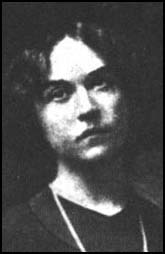Alexandra Kollontai
|
|
Alexandra Mikhaylovna Kollontai (Алекса́ндра Миха́йловна Коллонта́й — born Domontovich, Домонто́вич) (March 31 (March 19, O.S.), 1872 - March 9, 1952) was a Ukrainian Communist revolutionary, first as a member of the Mensheviks, then from 1914 on as a Bolshevik. She was effectively exiled by Stalin, who sent her abroad as a diplomat, and she was thus one of the very few "Old Bolsheviks" to escape death during the Great Purges of the 1930s.
At the time of the split in the Russian Social Democratic Labour Party into the Mensheviks under Julius Martov and the Bolsheviks under Vladimir Lenin in 1903, Kollontai did not side with either faction. However, she came to dislike aspects of Bolshevism and opted to join the Mensheviks.
In 1914, Kollontai joined the Bolsheviks and returned to Russia, after a period of exile for her earlier political activities. After the Bolshevik revolution in October 1917, she became People's Commissar for Social Welfare. She was the most prominent woman in the Soviet administration and was best known for founding the Zhenodtel or "Women's Department" in 1919. This organization worked to improve the conditions of women's lives in the Soviet Union, fighting illiteracy and educating women about the new marriage, education, and working laws put in place by the Revolution. She was well recognized later for socialist feminism. The Zhenodtel was eventually closed by Stalin in 1930.
AlexandraKollantaiLarge.jpeg
In the government, Kollontai increasingly became an internal critic of the Communist Party and joined with her friend, Alexander Shlyapnikov, to form a left-wing faction of the party that became known as the Workers' Opposition. However, Lenin managed to dissolve the Workers' Opposition, after which Kollontai was more or less totally politically sidelined.
As Joseph Stalin gained power, he sent Kollontai abroad as a diplomat. In 1923, she was appointed Soviet Ambassador to Norway, becoming the world's first female Ambassador. She later served as Ambassador to Mexico and Sweden. She was also a member of the Soviet delegation to the League of Nations. She died in 1952.
Alexandra Kollontai is an unusual figure in the history of the Soviet Union, as she was an "Old Bolshevik" and a major public critic of the Communist Party who was neither purged nor executed by the Stalin regime, though as a diplomat serving abroad, she had little or no influence in government policy or operations and so was effectively exiled.
Kollontai was the subject of the 1994 TV film, A Wave of Passion: The Life of Alexandra Kollontai, with Glenda Jackson as the voice of Kollontai.

